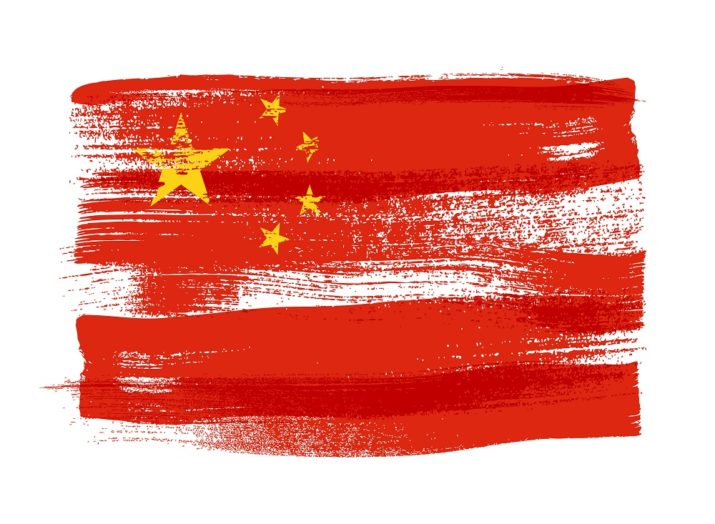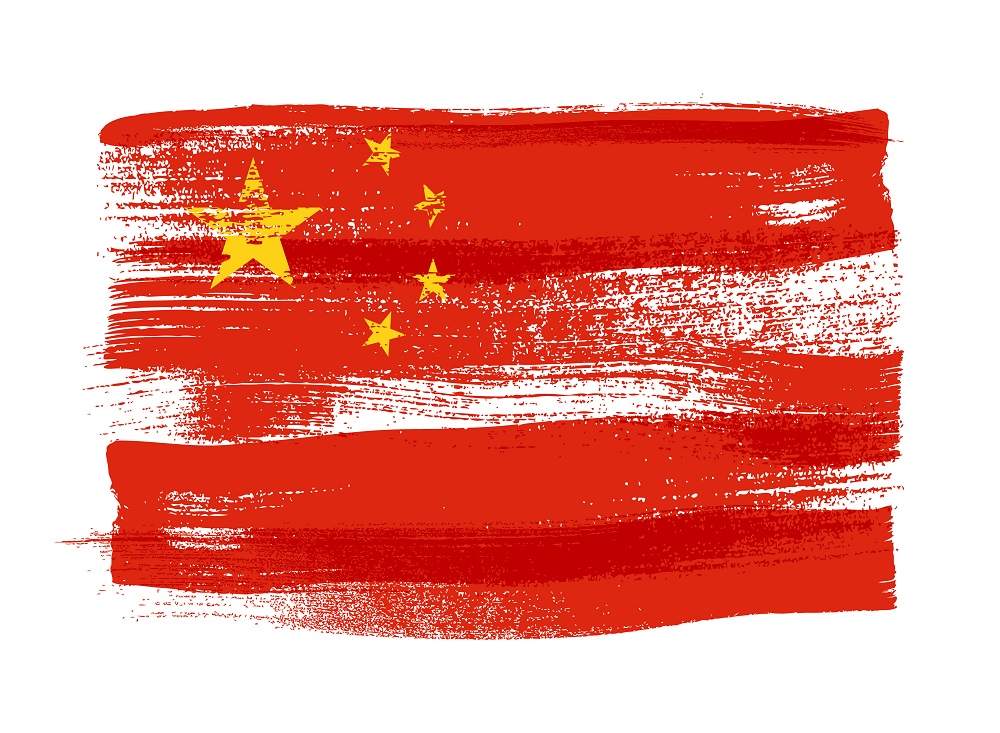

This is part of our special feature on Europe-China Relations.
In 2005, a large but internationally unknown state-owned enterprise from China bought a machine tool company located in the South of Germany. Kelch, a small but technologically advanced firm with a long tradition, was struggling and had gone into insolvency. Sensing an opportunity, the giant Harbin Measuring and Cutting Tool Group purchased 100 percent of the company, which belonged to the German “Mittelstand” of small- and medium-sized firms. This happened at a time when Chinese machinery firms made a series of relatively low-profile acquisitions of German machine tool companies. It was an early manifestation of China’s campaign, launched at the turn of the century, to promote Chinese enterprises in their efforts to go global and acquire companies overseas.
As this was one of the first examples of a complete Chinese acquisition of a European company, it did not take long before the media showed interest. Had the acquiring company been from another European or North American country, the deal would not have sparked such interest. But the Chinese deal was quite a novelty, given that acquisitions by Chinese firms were a rarity at that time. Kelch was approached by the German weekly news magazine Stern, which published an article about the acquisition in August 2006, based on an interview held with Kelch’s new manager at the time, a Mr Li, and some other employees. The title of the article – “Mr Li does not understand the question” (Flemming 2006) – already gives an indication of the tone of the article. It was sceptical throughout and employed a humoristic style that bounded on ridiculing the actors in the deal. Not only did the article have a predominant focus on controversial issues such as the culture shock, difficulties in communication and an increase in contractual working hours. It also made use of a series of anecdotes such as the difficulties of Mr Li’s interpreter, a “Mr Schü” (i.e. “Xu”), to translate effectively during the interview, and joked about both smelling of garlic as if they had eaten large quantities of kebab sauce for breakfast. The article could have focused on the opportunities of the deal and the Chinese company’s commitment to invest in the future of Kelch. However, these aspects only featured momentarily in the article.
Critical and sceptical accounts such as the Stern article are a common feature accompanying Chinese foreign direct investments (FDI), not only in Germany and Europe, but globally. Severe scrutiny of such investments is not only exercised by the media, but by a large variety of stakeholders including businesses, governments and the public. Even as Chinese investments in Europe have become more commonplace, with Chinese FDI in the EU growing more than 50-fold since the Kelch acquisition – from 1.3 billion USD of accumulated investment stock in 2006 to 70 billion USD in 2016 (MOFCOM 2006, 2016) – the scrutiny and criticism have not abated. On the contrary, they have intensified and evolved. Concerns about cultural differences and Chinese managers’ lacking capabilities have been replaced with anxieties about technology theft, national security, and associated “political and corporate leaders … scouring the globe with seemingly bottomless wallets in hand” (Tartar, Rojanasakul and Diamond 2018).
In light of this wide range of concerns, it may seem surprising that many of the people we interviewed for our research on Chinese investments conducted over the past twelve years expressed more positive views about Chinese FDI in Europe. The businesses involved with Chinese companies, and governmental institutions such as local constituencies or investment promotion agencies, often provide more encouraging and sometimes even enthusiastic points of view. Other interest groups are divided between those who see Chinese investment as an opportunity and those considering it a threat. Our analysis of a debate on this in the Chilean parliament illustrates this divide (Urdinez, Knoerich and Ribeiro 2016). The UK government exhibited similar uncertainty when Prime Minister Theresa May, in mid-2016, decided to review China General Nuclear Power Group’s involvement in constructing the Hinkley Point C nuclear power plant in Somerset. The decision to launch an investigation into the Chinese involvement in the project was inconsistent with the UK’s policy to promote Chinese investment in the UK to foster a “golden era” in UK-China relations. Such inconsistencies in policy towards Chinese investments repeat themselves globally in places like the United States, Australia and other European countries.
In the following sections, we examine the different perspectives put forward in the debate to uncover the contradictory narratives about Chinese FDI Europe. Our aim is to demonstrate that a more nuanced view of Chinese FDI is needed to fully comprehend the impact – both positive and negative. We focus our analysis on the UK, Germany, France and Italy, as they have been the main recipients of Chinese FDI. Chinese investments in these four countries exhibit similar characteristics. They have predominantly been motivated by access to European markets and the acquisition of strategic assets such as know-how and technologies (Knoerich 2012). Therefore, our discussion focuses on these types of Chinese FDI.
Controversies about Chinese FDI in Europe
Multinational enterprises from China continue to be relatively new players in the European economic and investment landscape. Until recently, most FDI into European countries originated from other European countries, North America or Japan. Chinese FDI is still much less compared to FDI from these countries. Moreover, as Chinese multinationals are “latecomer” firms from a developing country, they tend to be less experienced and internationally competitive than their counterparts from Europe, North America and Japan. But the number and size of Chinese investments have increased rapidly in recent years, and they have become more complex and more diverse. Chinese companies have made a considerable number of acquisitions of European firms, many of them more prominent than the Kelch case, such as electrical appliance manufacturer Midea’s acquisition of German robot company Kuka and ChemChina’s takeover of Swiss agribusiness company Syngenta. The scrutiny of Chinese FDI can therefore be partially attributed to its novelty in Europe’s investment landscape, its rapid expansion and the uncertainties that comes with it.
Yet novelty is not the only reason why concerns are being raised about Chinese firms. When Japanese multinationals were new investors in Europe, they were also scrutinised, but the concerns about them have meanwhile dissipated, and the scrutiny of Japanese investors was never as serious as that experienced by the Chinese today. Chinese enterprises, and the economy from which they originate, exhibit unique characteristics that are fundamentally at odds with the predominantly private companies and the free market-oriented economies of Europe. China operates a state capitalist economic model in which state ownership in companies is omnipresent and the state provides strong support to its firms and their overseas investments. The country is governed by an authoritarian regime in which the links between the party-state and both state-owned and private enterprises are particularly entrenched. This has implications for the way in which Chinese investments are perceived in Europe.
One concern is that government backing, and preferential financial support provided to Chinese investing firms by state-owned banks, may distort international competition and result in unfair business conduct. For example, a Chinese state-owned enterprise will have an advantage against its competitors in bids for European firms if it has financial support at concessional terms from the Chinese state banks to undertake this transaction. These concerns are exacerbated when Chinese companies in this way get hold of European firms with leading technologies and know-how, which could be transferred back to China, ultimately to the detriment of European competitiveness and even national security.
Especially governments and think tanks are beginning to voice their concerns more vigorously about Chinese FDI potentially threatening national and security interests. Some countries in Europe have already introduced investment screening mechanisms as a response to Chinese acquisitions, and the European Commission is considering the establishment of an EU-wide mechanism to block investments, including those from China. But concerns about national security are not limited to acquisitions of companies with world-leading technologies, such as Kuka. Investments in sensitive sectors, such as in telecommunications infrastructure or energy, raise similar concerns. This is why Chinese participation in the construction of Hinkley Point C has been reviewed, and Huawei’s deep involvement in the construction of UK telecommunications infrastructure has been subject to scrutiny by the Intelligence and Security Committee in the United Kingdom (Intelligence and Security Committee 2013).
These risks might still be considered acceptable if European firms had the same access to the Chinese market and its firms as companies from China enjoy in Europe. But foreign investors in China have always faced considerable restrictions. Particularly problematic is the fact that Chinese companies can acquire European firms belonging to sectors in which Chinese authorities restrict foreign purchases of Chinese firms, such as in the communications, automotive and financial sectors. With China’s FDI outflows surpassing its inflows in 2016, this situation has become untenable for European policymakers, who demand greater reciprocity of access to each other’s markets and firms.
Beyond the concerns raised about Chinese investments in policy circles, acquisitions of European companies by Chinese multinationals sometimes create unease in business circles as well. Local suppliers in Europe occasionally worry that they will lose business as the acquired firm may switch to procurement from cheaper Chinese suppliers after the acquisition. When European firms become Chinese-owned, their customers sometimes fear that Chinese ownership may result in a deterioration of product standards and quality given China’s poor reputation in this area. Moreover, employees and workers in companies acquired by Chinese investors, and the trade unions representing them, sometimes worry that the new owners will downsize the operations in Europe and cut jobs by moving them to China or replacing costly European workers with cheaper Chinese labour. They may even raise concerns that Chinese acquiring firms could merely be interested in transferring production, technology and know-how to China, and eventually shut down the European location. Finally, there are also concerns about a deterioration of standards of work and labour rights, given that such standards tend to be much lower in China.
Positive views of Chinese FDI in Europe
Although the analysis so far suggests that European governments are among the main critics of Chinese investments, they also play a pivotal role in attracting Chinese FDI into Europe. There is a clear recognition that Chinese FDI brings in capital, creates jobs and introduces new products to European markets, and it is therefore welcomed and promoted. In fact, European countries compete intensively with each other to attract Chinese FDI, including through the establishment of branch offices of their investment promotion agencies in China. The agencies identify potential investors and assist them in setting up business in the European country they represent (Knoerich 2012). Investment promotion agencies such as Germany Trade & Invest or Business France represent countries on a national level, and in addition, regional governments deploy representations to China to attract Chinese FDI that promises to boost specific regional and local economies.
These agencies seek to attract greenfield FDI, a form of investment where the investing company establishes a new operation in the host country, rather than acquiring an existing entity. Although acquisitions are supported, greenfield investments are the main focus of the investment promotion agencies as they create new businesses, jobs, know-how and economic activity, whereas acquisitions involve a change in ownership of an existing firm where the overall economic impact remains uncertain. The new businesses established through Chinese greenfield FDI constitute an interesting new group of customers for local European firms. Greenfield FDI brings Chinese companies closer to their European customers, which improves their after-sales services and shortens procurement times. Chinese greenfield investors are even often welcomed as competitors, as fair competition is seen as positive for the business environment. Although this introduces additional competition to the domestic companies, they are less challenged on their core competencies by Chinese latecomer firms that compete primarily with a competitive pricing structure. Top sectors of Chinese greenfield FDI in 2015-16 were real estate, renewable energy, paper, printing and packaging, and electronic and automotive components (European Political Strategy Centre 2017).
While Chinese greenfield FDI presently only makes a modest contribution to capital investment and job creation in Europe, those who actively promote Chinese investment do so with the conviction that the numbers will rise significantly in the future as the Chinese economy continues to grow and Chinese companies further expand their foothold in global markets. Chinese companies still rarely establish new production facilities in Europe, but this may change, and having a head start in attracting Chinese FDI may therefore pay off in the future.
Despite much criticism, there are also many positives about Chinese acquisitions. They are often mentioned by European managers, who tend to point out the strategic advantages of partnering with a Chinese company through an acquisition. Chinese acquisitions have saved European companies from bankruptcy and provided fresh capital for their further expansion and technological development. Being acquired by a Chinese enterprise creates new opportunities for European companies, as the Chinese parent begins to support its European subsidiary in accessing the Chinese market and setting up production in China. Chinese firms often express a long-term commitment to their acquired subsidiaries and guarantee them high levels of autonomy and independence. The management of the subsidiary – including any decisions on technology transfer – is mostly left in the hands of the Europeans, and the Chinese, where possible, refrain from making major changes in the acquired firms (Knoerich 2010). Companies from other European countries, the US or Japan prefer to alter arrangements in the subsidiaries they acquire in order to integrate them into their own businesses. It is therefore not surprising that Chinese companies are sometimes the preferred acquirers from a European manager’s perspective (Knoerich 2016).
Conclusions
As Chinese FDI in Europe continues to grow, so does the controversy. This short article presented a wide range of perceptions and views on Chinese investments in Europe, from positive and encouraging to highly critical, in a way rarely discussed by one individual stakeholder group. The contradictory views about Chinese investments are an indication of a deep sense of insecurity and uncertainty about the implications of Chinese investment for European countries, firms and citizens. But while aspects such as state ownership and government backing may create a sense of unease, there is yet no reliable evidence of a genuinely harmful impact resulting from this. There is evidence, however, of state-owned and private Chinese companies providing capital, employment and other benefits to European economies.
Many of the warnings about Chinese FDI are quite abstract and the potentially negative consequences may only materialise in the long run, when it will be too late to respond through policy. It is therefore essential to analyse the potential risks and identify solutions through policy, including engaging the Chinese government on issues of concern such as improving reciprocity and addressing state backing. A policy response should focus on tackling the issues concerning Chinese acquisitions, sensitive infrastructure and energy investments, rather than Chinese greenfield FDI, which is by its nature much less problematic for the European countries.
Despite the significant media coverage, the European public is relatively unaware of Chinese investments in Europe. Apart from Lenovo and Huawei, very few Chinese companies are known to the general public. Yet what the public do hear about Chinese firms and their investments primarily comes from the media, which continues an oftentimes critical and dramatizing coverage of Chinese investments whilst occasionally acknowledging the opportunities. Compared to acquisitions, greenfield investments are rarely covered in media reporting. The initial capital investment is too small for a good news story, and it might take many years for the associated business to expand. The potential benefits of Chinese greenfield investments are therefore much less covered in media reporting. There is a risk that a focus on the controversies about Chinese acquisitions will turn public sentiment of Chinese investors in Europe critical and negative over time.
Thus, from a Chinese perspective, the controversy about Chinese FDI is an issue of concern, as it can harm the businesses of Chinese investors abroad and damage China’s reputation. The Chinese government has in the past been looking into ways to improve the reputation of Chinese investors. It is therefore in the interest of both the Europeans and Chinese to examine and resolve the concerns about Chinese FDI in Europe.
At the time of writing, Kelch continues to be a subsidiary of Harbin Measuring and Cutting Tool Group. It is still in business and operating from Germany, twelve years after the critical article was published in the Stern magazine.
Jan Knoerich is Lecturer in the Economy of China at the Lau China Institute, School of Global Affairs, King’s College London. His current research examines the business and political economy dimensions of China’s financial internationalization and the outward foreign direct investment of Chinese multinational enterprises.
Simon Vitting is a Researcher at the Lau China Institute, School of Global Affairs, King’s College London. He conducts research on foreign business in China and the outward foreign direct investment of Chinese multinational enterprises.
Photo: China colorful brush strokes painted national country Chinese flag icon. Painted texture | Structure
References
European Political Strategy Centre (2017). Greenfield Investment Monitor. Issue 1, May 2017.
Flemming, Beate (2006). “Herr Li versteht die Frage nicht” [Mr Li does not understand the question], Stern, 7 August 2006.
Intelligence and Security Committee (2013). “Foreign involvement in the critical national infrastructure: The implications for national security”, June 2013.
Knoerich, Jan (2016). “Why some advanced economy firms prefer to be taken over by Chinese acquirers”, Columbia FDI Perspectives, No. 187, 21 November 2016, Columbia Center on Sustainable Investment.
Knoerich, Jan (2012). “The rise of Chinese OFDI in Europe”. In: Ilan Alon, Marc Fetscherin and Philippe Gugler (eds.), Chinese International Investments (Houndmills, Basingstoke: Palgrave MacMillan): pp. 175-211.
Knoerich, Jan (2010). “Gaining from the global ambitions of emerging economy enterprises: An analysis of the decision to sell a German firm to a Chinese acquirer”, Journal of International Management, Vol. 16 No. 2, pp. 177-191.
MOFCOM (2006). 2006 Statistical Bulletin of China’s Outward Foreign Direct Investment.
MOFCOM (2016). 2016 Statistical Bulletin of China’s Outward Foreign Direct Investment.
Tartar, Andre; Rojanasakul, Mira and Diamond, Jeremy Scott (2018). “How China is buying its way into Europe”, Bloomberg, 23 April 2018.
Urdinez, Francisco; Knoerich, Jan and Ribeiro, Pedro Feliú (2016). “Don’t cry for me “Argenchina”: Unraveling political views of China through legislative debates in Argentina”, Journal of Chinese Political Science, pp. 1-22.
Published on June 5, 2018.




